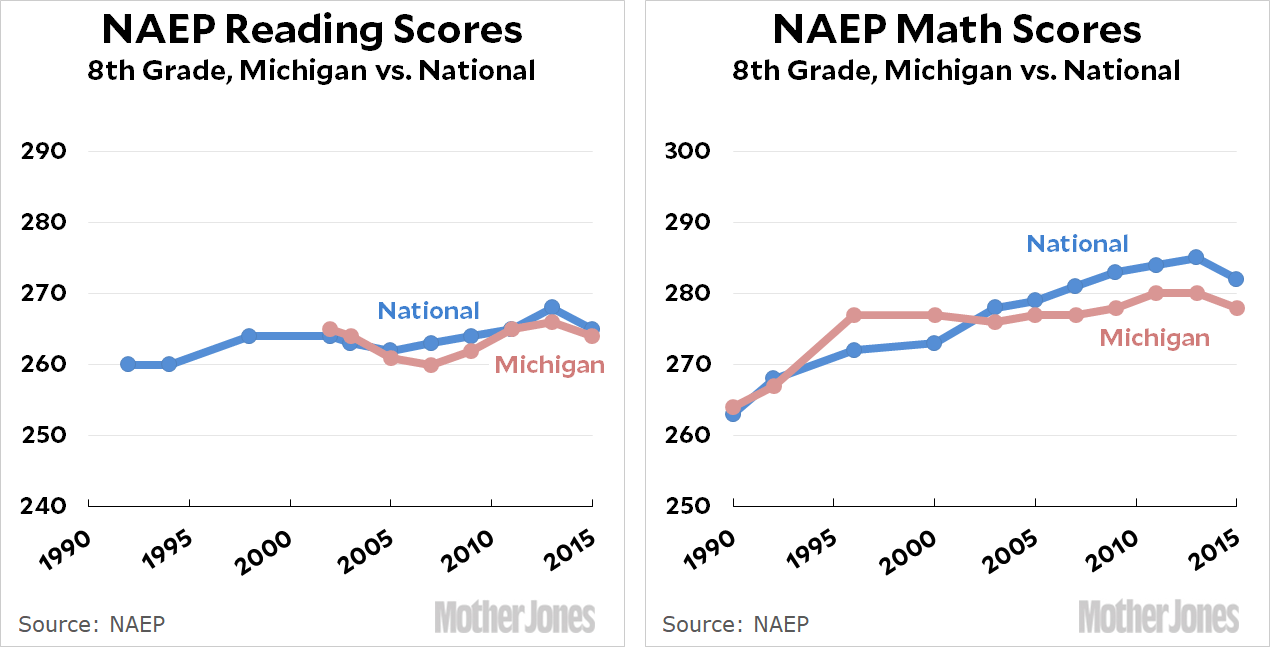At the request of 60 Minutes, let’s revisit the current state of education in Michigan. The data available to us is limited both in time and in scope, so if we want to get a longer-term handle on things we have to look at overall test scores, not scores just for public or charter schools. Here they are:

Rather than looking at state rankings, it’s more useful to simply look at raw scores. This gives you an idea of whether a drop from, say 20th to 27th, is actually meaningful.
In reading, Michigan’s scores have gone up and down, but on net they’ve been flat, just like national scores. In math, Michigan scores have improved considerably, but the state has lost about five points compared to national averages. The usual rule of thumb is that 10 points equals one grade level, so over the past 25 years the nation as a whole has progressed about half a grade level more than Michigan in math. If you disaggregate by race, the results are about the same.
This doesn’t address the question of whether charter schools tend to improve the performance of nearby public schools—although the evidence seems to suggest that they don’t. However, it does give us some idea of whether the charter reforms in Michigan have improved the overall performance of Michigan kids. The answer is no. Using the national averages as a baseline, the reforms seem to have had no effect in reading and a modest negative effect in math.

















